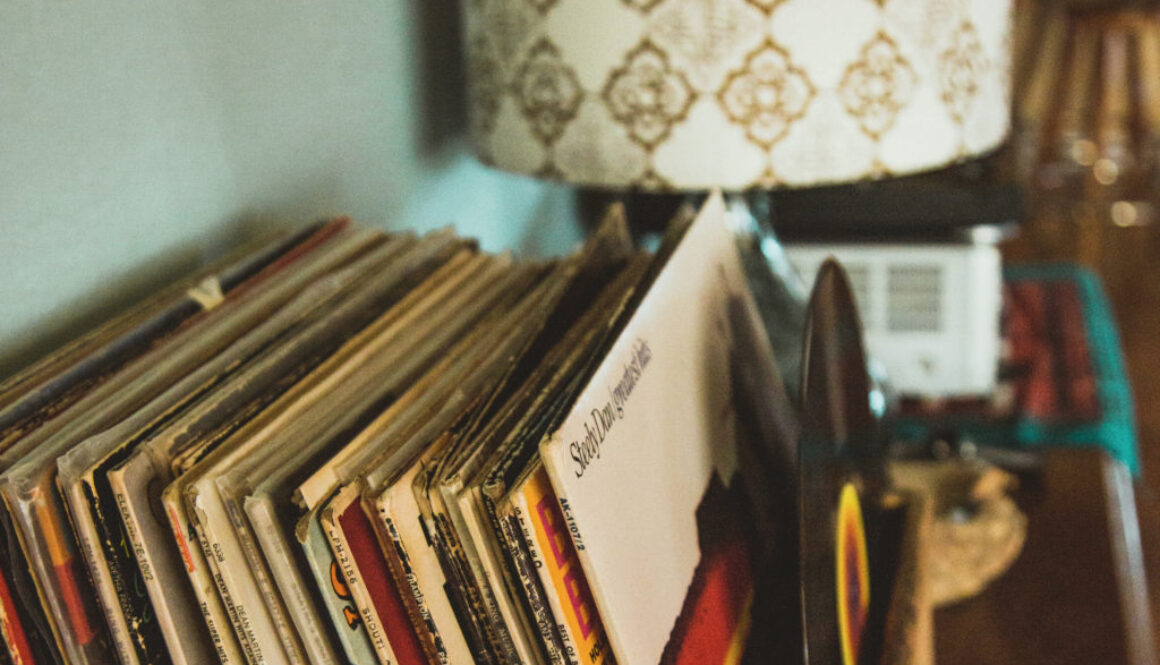Donna Levin: Steely Dan Fan
I was (and remain) a devoted fan of Steely Dan. I had all their albums on cassette; later I bought Donald Fagen’s solo albums. I adore their unique jazz-rock fusion, and omg! The horn sections!
I also enjoyed the rhyme and rhythm of their lyrics, but for the most part found them impenetrable. From one of my favorite songs, “Deacon Blues,” came the line, “They call Alabama the crimson tide.” I had no idea to what they referred. None. Zip. Zilch. Goose egg.
Fast forward about two decades, and we’re at a party given by one of my son’s classmates. The boy is wearing an Alabama State jersey. His was more scarlet than crimson, but I got it. You’d think that after all those years with a college-football-obsessed husband, I might have picked it up sooner, but… no.
If I hadn’t had that epiphany, I would only have had to wait another 10 years for the internet to give me access to interpretations of many of Steely Dan’s/Donald Fagen’s songs. I can only love them more for that. (I had sort of figured out “Caves of Altamira” but “Babylon Sisters”? No way.)
And so, again thanks to the internet, I recently purchased about sixteen of my favorites from their early days. I mean, where the hell are the cassettes I once had, and if I had them, where would I play them?
Here in the 21st Century, I play them on my phone. Wow. Has recording technology really progressed this far? I can pick out each instrument, though I can’t claim to correctly identify each one. Trombone. Electric guitar. Piano. And the saxophones are clearer than ever. The sound reverberates through my chemically unenhanced brain.
Apparently, Fagen and Becker did as many as forty takes of each track.
Which leads me (you had to hope I’d get here eventually, but I really wanted to tell that “crimson tide” story) to my point: Steely Dan’s finished product seems effortless, but that’s only when the listener doesn’t know how complicated the process is. Sometimes at a Broadway musical I’ve been able to peer into the orchestra pit and watch the musicians as they pick up their instruments, put them down, pick them up again. When I see that, I contemplate how many hours, on how many days, over a period of how many, not months, but years, a musician must practice, in order to play those instruments at all, let alone well enough to play on Broadway.
By contrast, writing looks so freakin’ easy. No notes to learn to read. No chords. No sharps or flats.
But it isn’t easier. Every novelist started her career by working with prompts such as “I hate blenders,” or “My First Felony,” then getting feedback, internalizing that feedback, and starting again. Throwing out material because it doesn’t fit, or entire novels that just won’t work.
Yes, in every generation there are a (small) handful of lucky people born with a gift that doesn’t need that much honing. But the vast majority of us, although born with ability, need to practice as hard as any musician, or painter. Or artist of any kind.
Yet somehow, because we had a working knowledge of English by the age of 12 (and because we had the misfortune to read about Francoise Sagan, who published her first, bestselling, novel, Bonjour Tristesse, at 17), we believe that we either have it or we don’t, and if we do, then two drafts, three if we’re perfectionists, are all we need.
So, when you’re writing that tenth draft, ready to set yourself on fire, and thinking that any world that doesn’t acknowledge your efforts is an unjust one… Well, actually, I feel your pain. It’s hard, and it doesn’t help to think of Steely Dan, but I wanted to share these thoughts anyway.
Image – Dane Deaner/Unsplash
Donna Levin is the author of four novels, all of which are available from Chickadee Prince Books. Her latest novel, He Could Be Another Bill Gates, was published this month; it’s available on Amazon, Barnes and Noble, or at the bookstore right across the street from your home. Please take a look.
